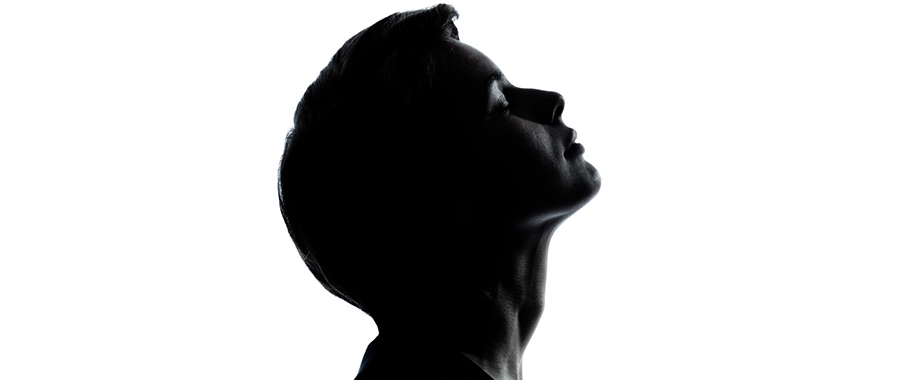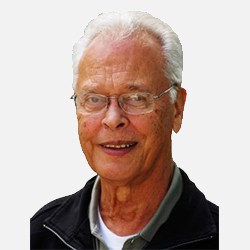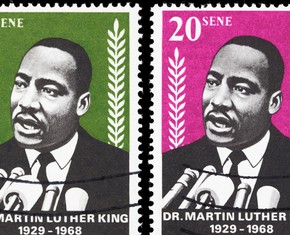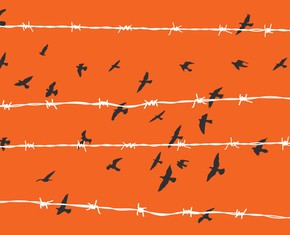The views expressed in our content reflect individual perspectives and do not represent the authoritative views of the Baha'i Faith.
In my letters to my friends’ imprisoned son, I tried my best to help him find the redemption he sought for the crime he had committed.
He wanted to know what the Baha’i Faith taught about crime and redemption, so I attempted to describe the Baha’i concept of the two natures inherent in each of us, and what they mean for determining our purpose in life.
Dear John:
Yes, imprisonment is painful. But this inevitable part of the process—the anguish, the anxiety and the pain you and those who love you are going through—does help us all understand better the “why” of your life. If continually pursued, you will eventually use those newly-won insights to fuel the vision, motivation, determination, and the belief in the “how” you are presently in the process of fashioning.
Concerning your question about the position of the Baha’i Faith on wrong-doing and being forgiven, here is my understanding of it. While Baha’is don’t believe in the conventional concept of original sin, we do believe that all are born imperfect in differing ways, and it is our job and the job of those who are responsible for us—initially our parents and teachers, our family members, and our community—to forge the kinds of relationships, the kinds of bonds that both by precept and example will lead us to the right path based on a pre-determined set of values.
We start with our purpose as human beings. The prophet and founder of the Baha’i Faith, Baha’u’llah, said our purpose is to know and worship God:
I bear witness, O my God, that Thou hast created me to know Thee and to worship Thee. I testify, at this moment, to my powerlessness and to Thy might, to my poverty and to Thy wealth. There is none other God but Thee, the Help in Peril, the Self-Subsisting. – Baha’u’llah, Prayers and Meditations by Baha’u’llah, p. 313.
Baha’u’llah further says that collectively, our purpose is to carry forward an ever-advancing civilization. Just as Peter is reputed by the Catholic Church to be the disciple given the primacy to lead the then Christian Church, we have the son of Baha’u’llah, whose title is Abdu’l-Baha, which means “Servant of God,” who further states that our purpose is to acquire virtue.
Also, Baha’is believe that our purpose is to establish the oneness of humanity. Here’s how I think those things work together: to know and love or worship God one must acquire virtue. A dear friend of mine spent over 60 years indexing the writings of the Baha’i Faith, and found over 1400 virtues or attributes of God in the writings of Baha’u’llah—which we, as the crowning peak of God’s creation, can potentially manifest. Establishing the oneness of humanity and carrying forward an ever-advancing civilization represent the collective aspects of this singular purpose, which in its totality embraces all of these goals.
So, when Baha’is talk about our purpose, these are the areas of emphasis. This is our “Why.” Baha’is understand that on the spiritual trajectory of life, each person has come to the end of our physical evolutionary reality, and at the same time has reached the beginning of our spiritual and therefore eternal nature:
In man there are two natures; his spiritual or higher nature and his material or lower nature. In one he approaches God, in the other he lives for the world alone. Signs of both these natures are to be found in man. In his material aspect he expresses untruth, cruelty and injustice; all these are the outcome of his lower nature. The attributes of his Divine nature are shown forth in love, mercy, kindness, truth and justice, one and all being expressions of his higher nature. Every good habit, every noble quality belongs to man’s spiritual nature, whereas all his imperfections and sinful actions are born of his material nature. If a man’s Divine nature dominates his human nature, we have a saint. Man has the power both to do good and to do evil; if his power for good predominates and his inclinations to do wrong are conquered, then man in truth may be called a saint. But if, on the contrary, he rejects the things of God and allows his evil passions to conquer him, then he is no better than a mere animal. – Abdu’l-Baha, Paris Talks, p. 61.
So, God gives us free will, and can make choices. We do, however, grow up in a society characterized by a culture that shapes us in ways that for the most part are subliminally transmitted. We just sort of absorb the patterns of feeling, thinking, and acting conveyed to us by the chief transmitting vehicles of that culture, our family, and the larger circles of social involvement—our neighborhood, our village or town or city, state, nation, etc. At the same time, from the millions and millions of promptings from the external world, stuff is going on inside us and being processed, largely determined by our evolving mind, our heart, and the interactions between them as guided by volition or choice. We then act on those decisions. We can choose, as Abdu’l-Baha says, to aspire to our higher nature, or our lower one.
















Comments
Sign in or create an account
Continue with Googleor